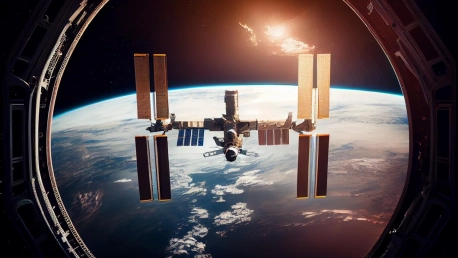The surge in cyber threats has increasingly targeted space infrastructure, prompting major space agencies and organizations to update their security protocols and implement advanced defensive strategies. The urgency to protect space assets is driven by the potential for digital attacks to disrupt vital services including global communications, climate monitoring, navigation, and security operations. International efforts are now intensifying to safeguard this critical domain, which is continually becoming more congested and contested. Ensuring the security of space-based systems against cyberattacks is of paramount importance, as the ramifications of any compromise could be far-reaching, affecting everything from day-to-day conveniences to the integrity of critical national security functions. The global community is thus actively working to fortify space against these digital threats.
Bridging Policy and Cyber Defense
ESA and NASA Lead the Response
Given the escalating cyber threats targeting space infrastructure, the European Space Agency (ESA) and NASA have crafted protective strategies. The ESA has identified an intricate threat landscape, stressing that satellite systems, data links, and ground stations are at risk from even small groups of hackers. They emphasize the critical nature of safeguarding space assets due to the wide-reaching impact of potential disruptions on key sectors that depend on satellite services.NASA, equally aware of the risks, has also acted, acknowledging space systems’ importance to national security, scientific advancement, and economic health. Their policy focuses on advanced technology and heightened awareness to preempt cyber threats, ensuring the security of space operations. Both agencies recognize the urgency in fortifying cybersecurity to protect vital space-based assets.
The FBI and AFOSI Raise Alarms
The U.S. Federal Bureau of Investigation (FBI) and the Air Force Office of Special Investigations (AFOSI) are among the organizations that have warned against sophisticated cyberattacks targeting America’s space capabilities. In their advisories, these bodies have highlighted the alarming trend of foreign entities attempting to infiltrate and compromise U.S. satellite communications. The FBI emphasizes that these threats are not only technical in nature but also incorporate strategic investments designed to weaken U.S. dominance in space.In light of these concerns, the U.S. government has been advised by the Cyberspace Solarium Commission (CSC) to consider classifying space as a critical infrastructure sector. This move would put space systems on the same priority level as other vital sectors, ensuring focused allocation of resources and the development of sector-specific protective measures.
Strengthening Global Cyber Partnerships
The Need for Collective Action
A pressing issue highlighted by both ESA and NASA involves the need for global cooperation in cyber defense, specifically for space infrastructure. Despite international cooperation in many areas of space exploration, the implementation of shared cybersecurity regulations has been patchy. Stakeholders, including public agencies, private corporations, and military organizations, must work together to create a unified approach to cyber threats.This collective action involves not just unified defensive strategies but also the mutual sharing of threat intelligence and best practices. Public-private partnerships are considered vital in this quest, as many commercial satellite providers also cater to government and defense requirements. Ensuring these collaborations are secure and mutually beneficial is paramount in creating a resilient defensive posture in space.
Fostering Technological Standards
The growing interdependency of space systems internationally necessitates the creation of technology-agnostic cybersecurity standards and practices. Policymakers recognize that the variety of technologies used in space systems requires flexible, robust regulatory approaches that can evolve alongside innovations in the sector. Key to this progress is the ability of countries to transcend political differences and focus on the common goal of protecting critical space infrastructure. These efforts extend to safeguarding the entirety of space operations, from communication and navigation satellites to the secure control of space vehicles. The drive towards such protection is encapsulated in policy documents, defense strategies, and the advocacy of organizations like the CSC. As space becomes ever more integral to our daily lives, it is clear that the cybersecurity of space infrastructure cannot be an afterthought but a foundational aspect of modern space policy.









